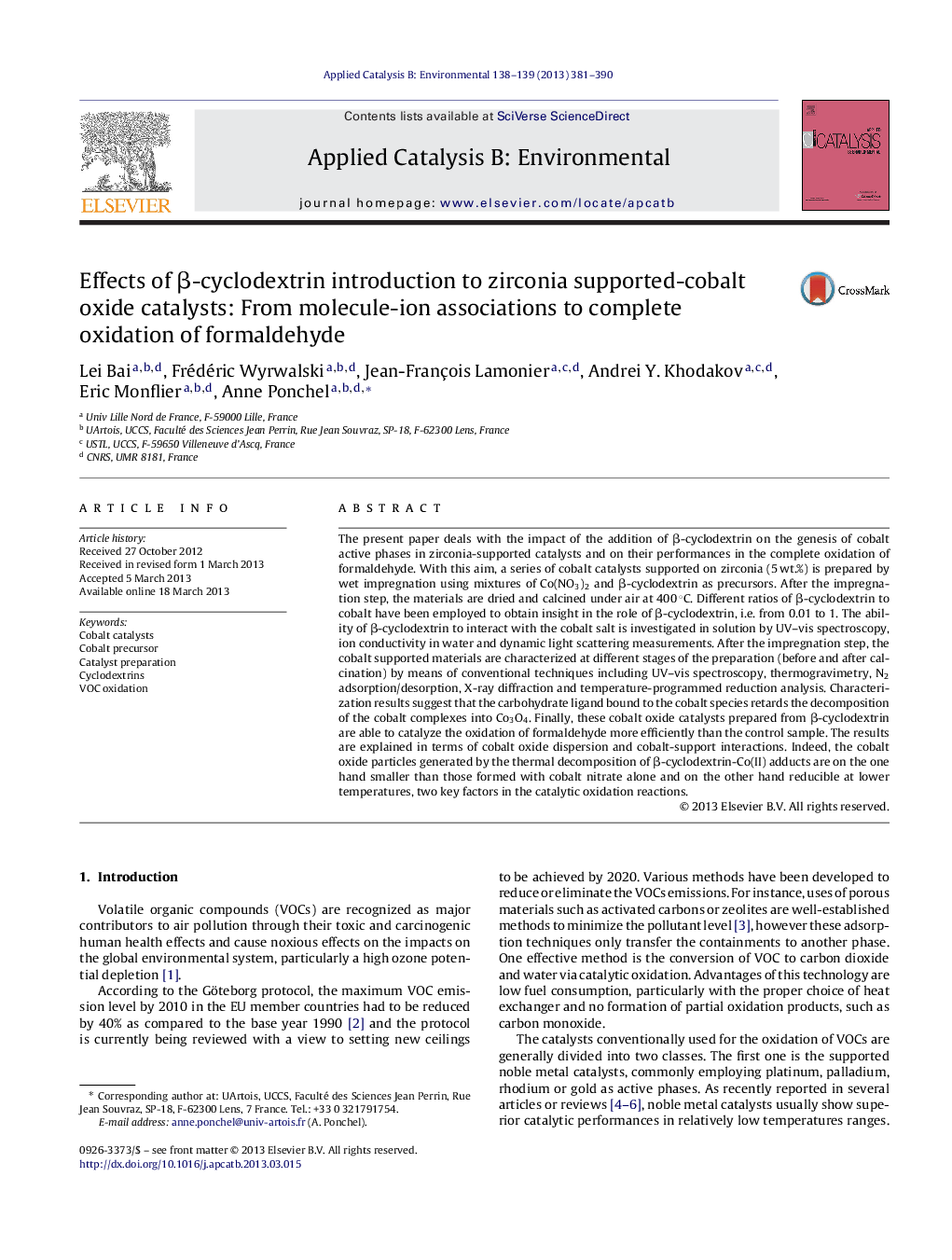| کد مقاله | کد نشریه | سال انتشار | مقاله انگلیسی | نسخه تمام متن |
|---|---|---|---|---|
| 46246 | 46435 | 2013 | 10 صفحه PDF | دانلود رایگان |

• β-CD as a novel additive for the design of Co3O4/ZrO2 catalysts for the HCOH oxidation.
• β-CD acts as an efficient scaffold molecule for the cobalt ions during preparation.
• Controlled addition of β-CD improves both dispersion and reducibility of Co3O4.
• Highest activity for β-CD to Co ratio of 0.1 with a 15 °C drop in light-off temperature.
The present paper deals with the impact of the addition of β-cyclodextrin on the genesis of cobalt active phases in zirconia-supported catalysts and on their performances in the complete oxidation of formaldehyde. With this aim, a series of cobalt catalysts supported on zirconia (5 wt.%) is prepared by wet impregnation using mixtures of Co(NO3)2 and β-cyclodextrin as precursors. After the impregnation step, the materials are dried and calcined under air at 400 °C. Different ratios of β-cyclodextrin to cobalt have been employed to obtain insight in the role of β-cyclodextrin, i.e. from 0.01 to 1. The ability of β-cyclodextrin to interact with the cobalt salt is investigated in solution by UV–vis spectroscopy, ion conductivity in water and dynamic light scattering measurements. After the impregnation step, the cobalt supported materials are characterized at different stages of the preparation (before and after calcination) by means of conventional techniques including UV–vis spectroscopy, thermogravimetry, N2 adsorption/desorption, X-ray diffraction and temperature-programmed reduction analysis. Characterization results suggest that the carbohydrate ligand bound to the cobalt species retards the decomposition of the cobalt complexes into Co3O4. Finally, these cobalt oxide catalysts prepared from β-cyclodextrin are able to catalyze the oxidation of formaldehyde more efficiently than the control sample. The results are explained in terms of cobalt oxide dispersion and cobalt-support interactions. Indeed, the cobalt oxide particles generated by the thermal decomposition of β-cyclodextrin-Co(II) adducts are on the one hand smaller than those formed with cobalt nitrate alone and on the other hand reducible at lower temperatures, two key factors in the catalytic oxidation reactions.
Figure optionsDownload as PowerPoint slide
Journal: Applied Catalysis B: Environmental - Volumes 138–139, 17 July 2013, Pages 381–390